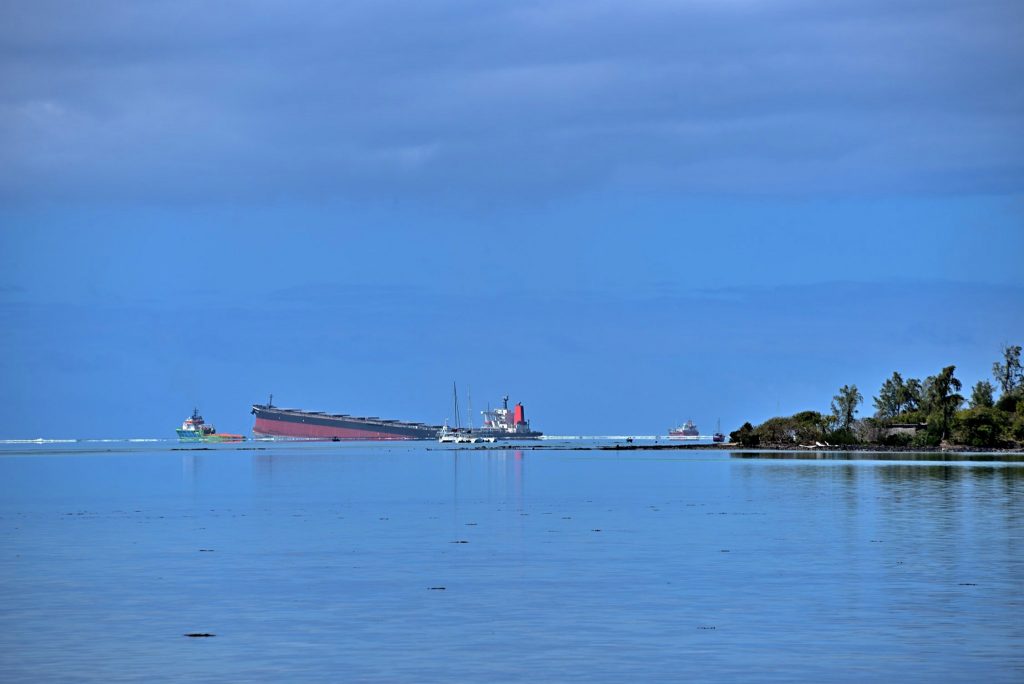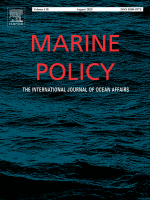Piracy, smuggling and illegal fishing are three blue crimes increasingly high on the international agenda. Such crimes have different expressions across the world’s maritime regions and affect human lives, political stability and economic interests in different ways, ranging from their impact on coastal communities to international shipping and even national security. What other crimes need attention? How are crimes linked to each other? These are the questions that we will discuss at a SafeSeas webinar on blue crime and the transformation of the maritime security agenda on Thursday, September 10th.
Author Archives: admin
Podcast on Blue Crime
In a recent episode of the podcast SeaControl of the Center for International Maritime Security (CIMSEC), I discuss the basic ideas of our recent paper on blue crime. Co-authored with Tim Edmunds, the paper published in Marine Policy develops a new matrix of transnational organised sea. In the podcast I discuss why such a move is important to get better at understanding hidden crimes and the interlinkages between them. Listen to it here.
New academic year begins in Copenhagen
On the 31st of August the new academic term begins in Denmark. For the University of Copenhagen, and the Department of POlitical Science I am a member of, I will be a special term given the ongoing challenges of dealing withe Corona regulations. Keeping students and staff safe and complying with distancing regulations, implies for the department that many courses will either be taught online or blended.
In the term I teach my first year graduate level lecture on Concepts in International Relations. The course investigates the importance of concepts for the study and practice of world politics and then revisits a number of them, ranging from concepts such as ‘knowledge’, ‘order’, ‘modernity’, and ‘practice’ to concepts such as ‘anthropocene’, or ‘queer’.
Chiuso per Ferie
Time to recharge the batteries before the new academic year starts in September. From 19th to 28th of August I am on holidays in Tuscany. Emails and queries will be answered from 31st of August.
Webinar on Mauritius Oilspill
On August 18th I participated in a webinar on the oil spill in Mauritius organised by the Mauritian diaspora.
Oil spill in Mauritius
The oil spill that occurred in Mauritius this week is an environmental tragedy. Having been to the island a number of times. I was shocked to see the pictures of these stunning waters destroyed by 1.000 tonnes of oil.
Based on a detailed reconstruction of the unfolding of the disaster and our work on capacity building, I wrote a number of short comments. I also gave a range of interviews to international and regional news outlets, including with BBC Radio, Reuters and Deutsche Welle TV.

In an article in The Diplomat I argue that in particular governments in small states need to see oil spills as national priorities. They need to undertake reviews of the national response plans in the light of the disaster. Read the article The Mauritius Disaster: Overlooked Dimensions of Maritime Security, published on August, 12th.
The Mauritius Times printed an interview with me on August, 14th. Read the interview in which I discuss the importance of learning the lessons from the disaster here.
On the same day, Today in Seychelles published a commentary titled Mauritius oil spill: Seychelles must protect its natural beauty and industry. I argue that Seychelles should urgently review its own contingency plans.
In addition, we published the a more detailed analysis of the response, whether and how the government was prepared and what questions need to be addressed on the same day as SafeSeas Commentary.
The comments were widely picked up in international news, Mauritius Times published further follow ups as did other media in Mauritius.
ISS Today publish a comment coauthored with Timothy Walker on Monday. The piece republished across African newspapers, focuses on the particular consequences for Africa.
The Conversation published a further comment that shows the weakness of the responses of the government and the industry. I argue for a public and transparent investigation of the issue.
A further contribution that addresses the regional consequences for the security architecture in the Western Indian Ocean, co-authored with Tim Edmunds was published by the Observer Research Foundation.
Presentation on Western Indian Ocean security
From 17-20th of August I am participating in the workshop ‘Green water Opportunities in the Indian Ocean Region’ organised by the U.S. Near East South Asia Center for Strategic Studies. The workshop revisits the core security and strategic challenges across the Indian Ocean.
In my own contribution to the event I draw on the first results from the TOCAS project, focusing on the Western Indian Ocean and in particular the problem of the continuing lack of capacity and the institutional fragmentation in the region. Contact me by email for a copy of the talk.
Commentaries on Beirut port disaster
In the afternoon of August 4th, a major explosion in the port of Beirut killed over 100 people and left thousands wounded. Given the importance of the port for Lebanon’s economy, the consequences will be felt for years.
Together with Scott Edwards I have written a series of commentaries that aim at contextualising the disaster and analysing its consequences for global trade and port management. We particular highlight the link to abandoned ships and containers, as well as the broader challenges posed by the trade in hazardous materials.
Our first general analysis was published by The Conversation, the day after the disaster. Read the piece titled “Beirut explosion: the disaster was exceptional but events leading up to it were not – researchers.” We argue to interpret the event in the light of the broader problem of abandoned ships and container.
Our second comment focuses on Africa. Recognising that African ports are particularly vulnerable, we argue for dedicated capacity building work to address the handling of hazardous material and waste crimes. The article titled “African ports need to learn the lessons of Beirut” was published by African Business Magazine on August 6th.
A third comment published with The Diplomat on August 7th, investigates the consequences for Southeast Asia, arguing that ports in the region have struggled in the past and now need to step up there game. Read “The Beirut Disaster Is a Wake-up Call for Southeast Asia. The devastating explosion in Beirut reminds us how vulnerable Southeast Asian ports might be.”
New article on blue crimes
Much confusion surrounds the question what kind of crimes at sea do need attention. The UN Security Council struggled with this question, as does the larger maritime security discourse. To offer new foundations, we offer in a new article a matrix for how to organise the debate. We propose the concept of blue crime as a way of thinking and organising the discussion on transnational organised crime at sea in a new article published with Marine Policy. It is one of the outcome of our TOCAS project and co-authored with Tim Edmunds. Read it here.
Presentation at African Maritime Collaborative Working Group
On July 16th I had the pleasure to give a presentation on our our new project AMARIS to the African Maritime Collaborative Working Group by the US government. The group seeks to gather the US government’s “African Maritime Community of Interest in an open thought-provoking environment, […] to better enable US participation in African and worldwide maritime Domain Integration and Security Awareness.”
In the presentation I set out the core objectives of AMARIS for understanding the maritime security situation in Ghana, and what broader lessons can be gained from it. I particularly highlighted the potential of our training school to form a sustainable network of maritime security analysts.
